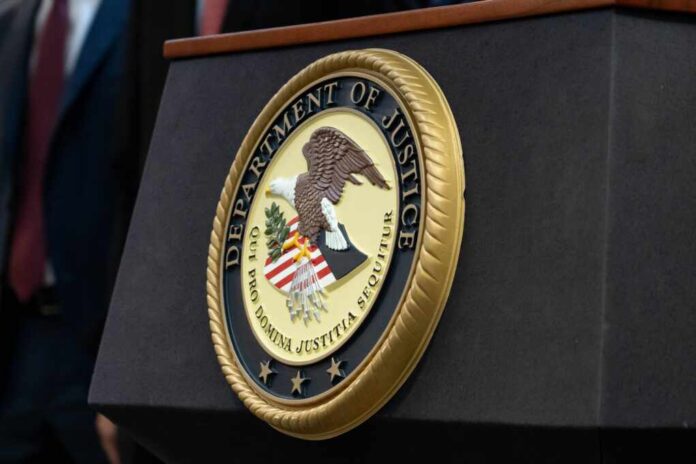
The Department of Justice has launched an investigation into the Hennepin County Attorney’s Office for considering race in plea agreements, questioning whether the policy violates constitutional rights to equal protection.
At a Glance
- The DOJ is investigating whether Hennepin County Attorney Mary Moriarty’s policy of considering race in plea agreements violates civil rights laws
- The controversial policy instructs prosecutors to consider a defendant’s race and age during plea negotiations
- Moriarty defends the policy as an effort to address racial disparities in the justice system
- Legal experts question the constitutionality of using race as a factor in prosecutorial decisions
- The Hennepin County Attorney’s Office has acknowledged the investigation and pledged to cooperate
DOJ Launches Civil Rights Investigation
The U.S. Department of Justice has initiated an investigation into the Hennepin County Attorney’s Office in Minnesota over a controversial policy that directs prosecutors to consider a defendant’s race during plea negotiations. U.S. Assistant Attorney General for Civil Rights, Harmeet Dhillon, announced the investigation through social media. The DOJ is examining whether the office is “engaged in a pattern of practice of depriving persons of rights, privileges or immunities secured or protected by the Constitution or laws of the United States.”
The investigation comes in response to a recently adopted policy by Hennepin County Attorney Mary Moriarty that explicitly instructs prosecutors to consider a defendant’s racial identity and age as factors when negotiating plea agreements. The policy has sparked significant debate about whether such considerations undermine the principle of equal justice under the law and potentially violate constitutional protections against discrimination.
Moriarty Defends Controversial Policy
Hennepin County Attorney Mary Moriarty has defended her policy as an effort to address longstanding racial disparities in the criminal justice system. The policy encourages prosecutors to consider defendants as “whole persons,” including their racial backgrounds, when making prosecutorial decisions. Moriarty, who campaigned on addressing racial inequities in the legal system, maintains that the policy aims to counteract unconscious bias among prosecutors.
“I campaigned on addressing racial disparities in the system. This is part of that attempt to have our prosecutors take a look at their potential unconscious bias.”, said Mary Moriarty.
The County Attorney’s Office, through spokesperson Daniel Borgertpoepping, has acknowledged awareness of the investigation and expressed willingness to cooperate while maintaining confidence that their policy complies with the law. The policy, formally titled “Negotiations Policy for Cases Involving Adult Defendants,” explicitly states that a defendant’s “racial identity… should be part of the overall analysis” in plea negotiations.
Legal Experts Question Constitutionality
Legal scholars have raised significant concerns about the constitutionality of using race as a factor in prosecutorial decision-making. David Schultz, a professor at Hamline University, has expressed skepticism about whether such a policy can withstand legal scrutiny. Experts point out that while addressing racial disparities is an important goal, using race explicitly in criminal justice decisions may violate equal protection principles.
“Using the criminal justice system as a way of trying to correct those racial disparities by saying we are going to consider race in our prosecution, or plea-bargaining decisions, raises a lot of problems.”, David Schultz said.
Critics argue that the policy contradicts the fundamental American legal principle that justice should be blind to characteristics such as race, religion, or economic status. They contend that considering race in plea negotiations undermines equal protection under the law and could actually perpetuate discrimination rather than eliminate it. Some observers have connected the policy to the aftermath of the George Floyd riots, suggesting it represents an overcorrection in response to public pressure.
Broader Implications for Criminal Justice
The investigation raises important questions about how to address racial disparities in the criminal justice system without compromising core legal principles. The Hennepin County policy has become a focal point in the national debate about criminal justice reform, equity, and constitutional rights. The DOJ’s findings could have far-reaching implications for prosecutors’ offices nationwide that are grappling with similar issues.
“We are aware of the letter from the Department of Justice posted to social media but have not received it. Our office will cooperate with any resulting investigation and we’re fully confident our policy complies with the law.”, said Daniel Borgertpoepping.
This marks the second time Moriarty has faced scrutiny for her prosecutorial approaches. Critics view her policy as representing a troubling shift away from the ideal of a justice system that treats all individuals equally regardless of their background. The outcome of the DOJ investigation will likely influence how prosecutors nationwide approach the balance between addressing systemic inequities and upholding constitutional guarantees of equal treatment.

























